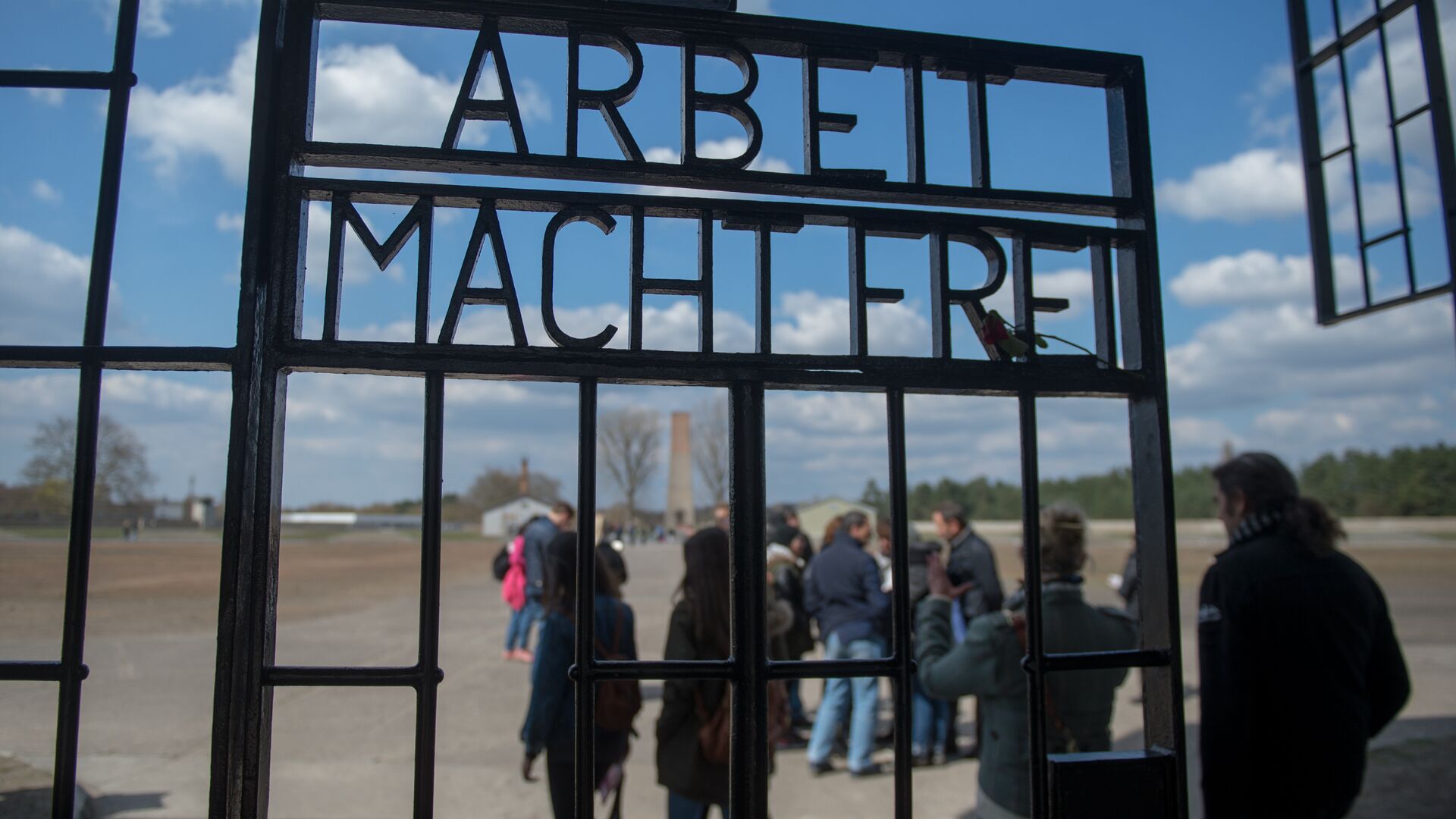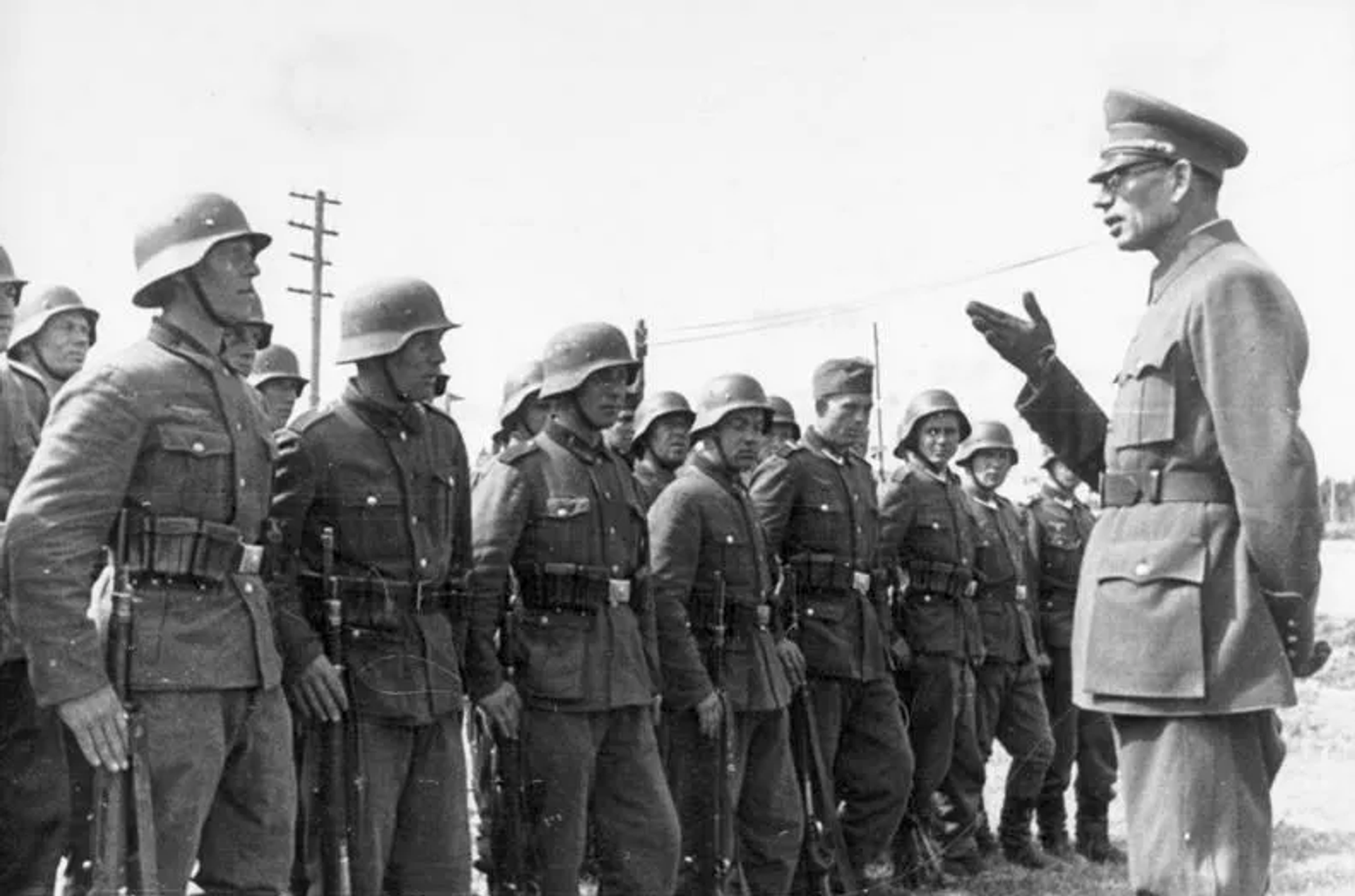https://sputnikglobe.com/20210926/ex-nazi-oberlanders-case-sets-precedent-for-holding-war-criminals-to-account-in-canada-1089427224.html
Ex-Nazi Oberlander's Case Sets Precedent for Holding War Criminals to Account in Canada
Ex-Nazi Oberlander's Case Sets Precedent for Holding War Criminals to Account in Canada
Sputnik International
TORONTO (Sputnik) - Former Nazi death squad member Helmut Oberlander's denaturalisation and attempted deportation sets a Canadian legal precedent for holding... 26.09.2021, Sputnik International
2021-09-26T15:59+0000
2021-09-26T15:59+0000
2021-09-26T16:41+0000
world
canada
nazi
ss
https://cdn1.img.sputnikglobe.com/img/104977/96/1049779620_0:254:4928:3026_1920x0_80_0_0_6dab63a7f289301423918ec6f70f4787.jpg
Earlier this week, the former Schutzstaffel (SS) interpreter died in his home, according to his family. That happened before the deportation hearings against him were concluded.Oberlander’'s passing before any semblance of justice could be served has evoked strong emotions from those still haunted by the legacy of Nazi-era crimes.However, Canadian legal experts say that Oberlander's case has played its role as it sets a precedent for holding any future war criminals to account.Corrigan's assessment is echoed by Gary Botting and Richard Kurland, two of Canada's top experts in the field.Gaps in the SystemOberlander, an ethnic German, was born in 1924 in a small community in what is now the Zaporozhye region of Ukraine. The now-deceased resident of Waterloo, Ontario was conscripted into the SS at the age of 17 and served there as a translator for the Einsatzkommando 10a — a death squad responsible for the killing of tens of thousands of Jewish and Soviet civilians.Oberlander immigrated to Canada in 1954 and was able to obtain permanent residency under false pretences by withholding the details of his wartime activities from Canadian officials. The ex-Nazi became a Canadian citizen in 1960, according to court documents. However, Canadian authorities became aware of his activities as early as 1963, Corrigan says citing documents.Oberlander's legal battle with the Canadian government began in 1995, nine years after the report of the 1986-87 Commission of Inquiry on War Criminals in Canada — better known as the Deschenes Commission — had recommended Oberlander's citizenship be revoked.After a lengthy legal battle, Oberlander was stripped of his citizenship for the fourth and final time in 2017 and Canada's Supreme Court issued a ruling last December that blocked any possibility for Oberlander to appeal this decision.Botting says multiple factors allowed Oberlander to first enter Canada, then fend off its justice system.Once the former death squad member was able to enter Canada, the country's legal system which is "very concerned about procedural fairness and judicious decision making", according to Corrigan, was susceptible to an endless cycle of following "due process".'Safeguards' for FutureWhile the Oberlander case has strengthened Canada's justice system, Kurland admits the country's judicial system is not infallible.Yet, Kurland isn't eager for new measures.Corrigan agrees, saying that "legal safeguards" should remain in place.Meanwhile, the legal process against Oberlander in Canada is over. Government prosecutors acquiesced to the 97-year-old's legal counsel Ronald Poulton, agreeing to end the deportation hearings against Oberlander, pending the receipt of his death certificate.Moscow, however, will not close its case against Oberlander after his passing as crimes against humanity have no statute of limitations, Russian Ambassador to Canada Oleg Stepanov told Sputnik.Oberlander faces legal scrutiny in Russia, where investigators say that he was complicit in the World War II massacre of 27,000 civilians, including orphaned children, in the Rostov Region. The Federal Security Service's files seen by Sputnik shed still more light on the executions carried out by Sonderkommando SS-10A during the war and point to Oberlander's link to that unit.
canada
Sputnik International
feedback@sputniknews.com
+74956456601
MIA „Rossiya Segodnya“
2021
Sputnik International
feedback@sputniknews.com
+74956456601
MIA „Rossiya Segodnya“
News
en_EN
Sputnik International
feedback@sputniknews.com
+74956456601
MIA „Rossiya Segodnya“
Sputnik International
feedback@sputniknews.com
+74956456601
MIA „Rossiya Segodnya“
canada, nazi, ss
Ex-Nazi Oberlander's Case Sets Precedent for Holding War Criminals to Account in Canada
15:59 GMT 26.09.2021 (Updated: 16:41 GMT 26.09.2021) TORONTO (Sputnik) - Former Nazi death squad member Helmut Oberlander's denaturalisation and attempted deportation sets a Canadian legal precedent for holding those involved in crimes against humanity to account, legal analysts told Sputnik.
Earlier this week, the former Schutzstaffel (SS) interpreter died in his home, according to his family. That happened before the deportation hearings against him were concluded.
Oberlander’'s passing before any semblance of justice could be served has evoked strong emotions from those still
haunted by the legacy of Nazi-era crimes."The fact that Oberlander was able to live out his life in freedom and die in the arms of his family is an indictment of the entire Canadian justice system", coordinator of the US-based Odessa Solidarity Campaign Phil Wilayto told Sputnik.
However, Canadian legal experts say that Oberlander's case has played its role as it sets a precedent for holding any future war criminals to account.
"The next time Canada wants to deport a war criminal the legal steps and principles behind the law have been greatly clarified. This should streamline the procedure and speed it up", Ed Corrigan, a Canadian lawyer specialising in citizenship, immigration, and refugee issues, told Sputnik.
Corrigan's assessment is echoed by Gary Botting and Richard Kurland, two of Canada's top experts in the field.
"The Oberlander denaturalisation decision will in itself prevent the delay from reoccurring. He was treading on new ground, which accounts for the delay. Now there is a clear path to follow. Such is the nature of stare decisis and legal precedent", Botting told Sputnik.
Oberlander, an ethnic German, was born in 1924 in a small community in what is now the Zaporozhye region of Ukraine. The now-deceased resident of Waterloo, Ontario was conscripted into the SS at the age of 17 and served there as a translator for the Einsatzkommando 10a — a death squad responsible for the killing of tens of thousands of Jewish and Soviet civilians.
Oberlander immigrated to Canada in 1954 and was able to obtain permanent residency under false pretences by withholding the details of his wartime activities from Canadian officials. The ex-Nazi became a Canadian citizen in 1960, according to court documents. However, Canadian authorities became aware of his activities as early as 1963, Corrigan says citing documents.
Oberlander's legal battle with the Canadian government began in 1995, nine years after the report of the 1986-87 Commission of Inquiry on War Criminals in Canada — better known as the Deschenes Commission — had recommended Oberlander's citizenship be revoked.
After a lengthy legal battle, Oberlander was stripped of his citizenship for the fourth and final time in 2017 and
Canada's Supreme Court issued a ruling last December that blocked any possibility for Oberlander to appeal this decision.
Botting says multiple factors allowed Oberlander to first enter Canada, then fend off its justice system.
"Canada did not have a proper screening process in place in the decades after the Second World War. The Criminal Code did not allow for prosecution in Canada. Once he became a citizen, he was protected from exile by the Canadian Bill of Rights", Botting said.
Once the former death squad member was able to enter Canada, the country's legal system which is "very concerned about procedural fairness and judicious decision making", according to Corrigan, was susceptible to an endless cycle of following "due process".
"Since the Criminal Code didn’t apply, according to legal precedent, the government had to strip Oberlander of his citizenship, which decision Oberlander appealed and appealed and appealed… the government still had to follow due process to have him deported. That meant going to yet another body, the Immigration and Refugee Board," Botting said.
While the Oberlander case has strengthened Canada's justice system, Kurland admits the country's judicial system is not infallible.
"As long as a person has financial resources to engage legal talent over many years, this sort of thing is still possible," Kurland said.
Yet, Kurland isn't eager for new measures.
"I wouldn't change anything. The law now provides the authority to deal with these kinds of cases. I'm not sure more can be done, in a free and democratic society. It is no good to give away freedoms from millions of good people, to catch a very small number of bad people", Kurland said. "We now have protections in place to prevent another Oberlander-like case from happening in future".
Corrigan agrees, saying that "legal safeguards" should remain in place.
Meanwhile, the legal process against Oberlander in Canada is over. Government prosecutors acquiesced to the 97-year-old's legal counsel Ronald Poulton, agreeing to
end the deportation hearings against Oberlander, pending the receipt of his death certificate.
Moscow, however, will not close its case against Oberlander after his passing as crimes against humanity have no statute of limitations, Russian Ambassador to Canada Oleg Stepanov told Sputnik.
Oberlander faces legal scrutiny in Russia, where investigators say that he was complicit in the World War II massacre of 27,000 civilians, including orphaned children, in the Rostov Region. The Federal Security Service's files seen by Sputnik shed still more light on the executions carried out by Sonderkommando SS-10A during the war and point to Oberlander's link to that unit.



